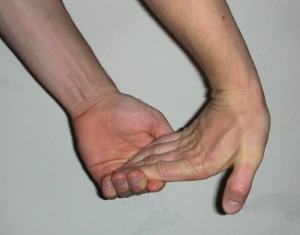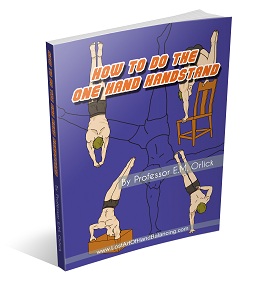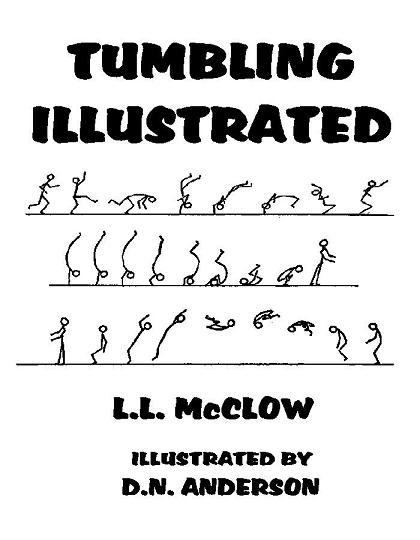As you know if you’ve been sticking around here for a long time I’ve had chronic issues with my right wrist making it much less flexible then my left one.
With handstands taking some degree of flexibility this has made progress hard at times. In fact, it has gotten so bad at times I couldn’t do a handstand. (At least not a straight one, if you notice in some pictures I’m favoring my left side.)

This stretch alone wasn't cutting it...
Walking around, presses, and forget about a one hand handstand on the right arm. At times its better, at other times its worse.
But in the last couple weeks I have made lots of improvement. This is because I have been following a systematic approach that hits the issue from all sides.
I truly believe that within a few months I will completely get over this pain that has held me back for nine years.
I write this message to ask who is interested in this information?
If it was one simple thing I would just write about it or throw a short video up explaining my process. But it takes more than that.
What I’ve been doing addresses the physical, nutritional, mental and even emotional sides of a bad wrist. While I believe this approach would work for just about any chronic issue, I can’t say for sure.
Of course, if you do have a chronic joint pain or problem I know you’re willing to try about anything to fix it up.
Just comment down below if you’re interested.
Good Luck and Good Hand Balancing,
Logan Christopher





